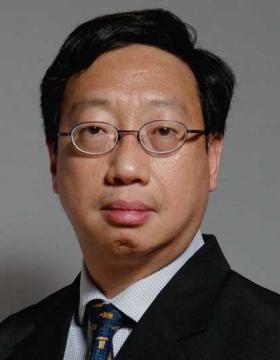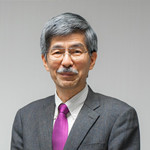
Prof. King-Jet Tseng |
King-Jet Tseng was born in Singapore and received B.Eng. (First Class) and M.Eng. from National University of Singapore, and Ph.D. from Cambridge University in England. He is a Fellow of IEEE, Fellow of IET, a Fellow of IES and registered as Chartered Engineer with UK Engineering Council. He has more than 35 years of academic, research, industrial and professional experience in electrical power and energy systems. He has been the Head of Power Engineering Division in Nanyang Technological University and the Board Member of the Singapore Green Building Council. He co-founded the Singapore-Berkeley Building Efficiency and Sustainability for the Tropics (SinBerBEST) program funded by Singapore’s National Research Foundation, and the Electrical Power Systems Integration Laboratory @ NTU, a Rolls-Royce research facility. He has graduated more 30 PhD students, published more than 300 papers and inspired a number of technology start-up companies. Currently, he is the Professor and Advisor for Electrical Power Engineering at Singapore Institute of Technology, working on his vision of future urban electrical distribution architecture which can provide flexible and heterogeneous power quality for greater sustainability. He continues to contribute to International Electrotechnical Commission as a standardization expert for grid-integrated electrical energy storage systems. |
coming more...
Previous Speaker

Prof. Atsuo Kawamura |
Atsuo
Kawamura (Life Fellow, IEEE) received the
B.S.E.E., M.S.E.E., and Ph.D. degrees in
electrical engineering from the University of
Tokyo, Tokyo, Japan, in 1976, 1978, and 1981,
respectively. After the five-year-stay at the
University of Missouri-Columbia as a faculty
member, he joined Yokohama National
UniversityYNU) in 1986, and in 1996 he became a
professor. He served as a dean of College of
Engineering Science and Graduate School of
Engineering from 2013 to 2015. He has become
Professor Emeritus in 2019, and was a professor
of endowed chair (Power Electronics) at YNU till
2024, and now belongs to Institue of
Multidiciplinary Science of YNU. He has served
to completion of 38 Ph.D and 147 Master’s and
179 Bacheler’s students. He holds 7 patents and
has published more than 140 journal papers and
320 international and 580 domestic conference
papers, and 9 books. (h-index(Google) is 47.) |

Prof. Emeritus Takashi HIYAMA |
Takashi Hiyama received his B.E., M.S., and Ph.D. degrees all in Electrical Engineering from Kyoto University, Japan in 1969, 1971, and 1980, respectively. Since 1989 to March 2012, he had been a full professor at the Department of Electrical Engineering and Computer Science, Kumamoto University, Japan. From April to May of 1975, he was a visiting researcher at Moscow Energy Institute of former Soviet Union. From June 1985 to September 1986, he was with Clarkson University, NY, USA as the Research Fellow involved in ESSERCO (Empire State Electrical Energy Research Corporation) project on Harmonics Measurement and Analysis. He was also working as the Director of International Student Center, one of the Members of the Special Advisory Board for the President, the Vice-Dean and the Dean of the Graduate School of Science and Technology, and the Director of Shock Wave and Condensed Matter Research Center at Kumamoto University. His research interests included intelligent systems applications to electric power systems, especially for the operation, control and management of power systems. In addition, his research covered the applications of renewable energy power sources in power distribution networks for the configuration of micro-grid and/or smart-grid. Here, it should be noted that the development of FLPSS (Fuzzy Logic Power System Stabilizer), the introduction of Artificial Neural Network based MPPT control for PV systems, and the application of Multi-agent Systems for the coordinated Automatic Generation Control (AGC) including PV, WTG, and Energy Capacitor Systems with regular power plants. He also jointly worked for 25 years at the several divisions of Kyushu Electric Power Co. including Research Institute with varieties of research topics related to operation, control and management of electric power systems. He published five books and more than 200 papers including international conference papers. His current h-Index is 34, and the total citations of his papers reach 4458 (SCOPUS/June 2022). Soon after his retirement from Kumamoto University at the end of March 2012, he got the title of Professor Emeritus of Kumamoto University, and he was also assigned to the President of Kumamoto Prefectural College of Technology. After two years work there, he came back to Kumamoto University in April 2014 with the title of Distinguished Professor at the Priority Organization for Innovation and Excellence (POIE). There, he worked as the Director of International Collaborative Research Group for Science and Technology and later the Director of International Research Organization for Advanced Science and Technology (IROAST) until the end of March, 2020. Currently, he is a Life Senior Member of IEEE and a Life Member of IEE of Japan. |

Prof. Juan Yu |
Yu Juan (1980-), IEEE Senior member, professor and doctoral supervisor, serves as deputy director of the Center for Electric Power and Energy Reliability Research, Chongqing University. She is mainly engaged in risk assessment and control of electric power and energy systems, deep learning and big data technology theory. She hosted and participated in more than 40 scientific research projects, and published more than 90 high-level papers. 37 national invention patents were granted, including 2 American patents. She won the first prize of China Electric Power Science and Technology Award, the first prize of Chongqing Science and Technology Award, the second prize of Science and Technology Award of the Ministry of Education, and the nomination prize of 100 Excellent Doctoral Dissertations in China. She served as Chairman of the Working Group on Reliability Assessment of IEEE PES, Chairman of IEEE PES Chongqing chapter and other international academic organizations and conferences. |

Prof. Masayuki Morimoto |
Masayuki Morimoto was born in Tokyo, Japan in 1952. He received his BSc, MSc and PhD degree all in electrical engineering from Keio University, Japan in 1975, 1977 and 1990 respectively. He worked at Mitsubishi Heavy Industries, Ltd. from 1977 to 2005. From 2005 to 2018, he was a Professor at the Department of electrical and electronics engineering, Tokai University. His research interests are in the areas of power electronics and its applications, electric machines and drives, and vehicle application. He is a Fellow of IEEJ, member of IEEE and several academic societies. He is the single author of 10 technical books in Japanese and the coauthor/editor of more than 10 technical books in Japanese. |

Prof. A. R. Al-Ali |
A. R. Al-Ali (SM IEEE) received his Ph.D. in electrical engineering and a minor in computer science from Vanderbilt University, Nashville, TN, USA, Master degree from Polytechnic Institute of New York, USA, and B.Sc.EE from Aleppo University, Syria. Professor Al-Ali worked as an associate/assistant professor in KFUPM, Saudi Arabia (1991- 2000), and has been a Professor of Computer Science and Engineering at the American University of Sharjah (UAE) since 2000. His research and teaching interests include; embedded systems hardware and software architectures, smart homes automations, smart grid evolutions and development, smart factories and cities. Professor Al-Ali has many conference and journal publications including two USA and European Patents. He has also been invited to deliver keynote speeches on the recent evolution and development on the Internet of Things, Cyber-Physical Systems, smart grid & energy, and smart cities at several regional and international conferences. |

Prof. Kien Wen Sun |
Dr. Kien Wen Sun was born in Taipei, Taiwan. He holds a Ph.D. from the Department of Electrical Engineering at Princeton University in New Jersey, United States. From 1995-2000, he was on the faculty of the Electronic Engineering at Feng Chia University, Taiwan. He jointed the faculty of Department of Physics as a professor at National Dong Hwa University, Hualien, Taiwan, from 2000-2005. Since year 2005, he became a professor of Department of Applied Chemistry at National Yang Ming Chiao Tung University (formerly known as National Chiao Tung University), Hsinchu, Taiwan. During his sabbatical in 2012, he was a visiting professor at Department of Electrical and Computer Engineering of University of Waterloo, Canada. Dr. Sun was appointed as the Department Chair of Applied Chemistry at NCTU from 2012-2014. He was also a Joint Appointment Professor at Department of Electronics Engineering and Director of the Center of Nano Science and Technology at National Chiao Tung University from 2016-2019. His research interests include femtosecond laser and laser spectroscopy in III-V compound semiconductors, spintronics, nanoimprint, nanolithography, nanoelectronics, organic/inorganic solar cells, diamond related nanomaterials, perovskites and perovskite LEDs, and chemosensors. He has published more than 110 SCI journal papers in above research fields. He is a member of Phi Tau Phi Scholastic Honor Society and Fellow of Hong Kong Chemical, Biological & Environmental Engineering Society (HKCBEES). He was given the Rudolph A. Marcus Award by Publishing Division of Cognizure and LOGNOR in 2017 and Taiwan Future Tech Award on 2020. He has served as reviewers for numerous high impact international journals, such as Nature Communications, Advanced Functional Materials, Progress in Photovoltaics, Nanoscale Horizons, etc. He served as Guest Editors of several Special Issues in Chemosensors and is now a Topic Editor of Chemosensors. |

Prof. Tek-Tjing Lie |
Professor Tek Tjing Lie is the Deputy Head of School at the Auckland University of Technology (AUT) School of Engineering, Computer and Mathematical Sciences. He received his BS degree from the Oklahoma State University, MS and PhD degrees from Michigan State University. He has previously held academic positions in the School of Electrical and Electronic Engineering at the Nanyang Technological University. His research interests are in the fields of Power System Operation and Control, Deregulated Electrical Power Markets, AI Application to Power Systems, Renewable Energy and Smart Grids. |

Kenji Ushimaru |
Kenji Ushimaru has been engaged in a variety of technical, policy, and regulatory issues in the areas of energy and environment. Mr. Ushimaru’s past responsibilities include project management of major contracts for the U.S. National Science Foundation, the U.S. Department of Energy, and a host of research and development programs for a variety of utility companies. Infra Innovations specializes in inspection and repair of underground utility infrastructure, such as water/sewer pipelines and electric transmission systems. Mr. Ushimaru will present a current status report of renewable energy sources, specifically from the industry’s perspective. His business is located in Seattle, Washington, U.S.A., where the industrial electricity tariff is one of the lowest in the United States, and the statewide electricity generation source has some of the smallest carbon footprints in the United States, due to its large hydroelectric resources. Yet, the largest private electric utility in the state is taking initiative to build up an impressive level of solar and wind resources. He will discuss how and why renewable resources are growing regardless of the local grid parity pricing. Using the expertise gained in his professional life, Mr. Ushimaru is also active in the Global Humanitarian Technology Committee of the IEEE, and he is now involved in sustainable carbon sink operations as a profit-making business in Africa. |